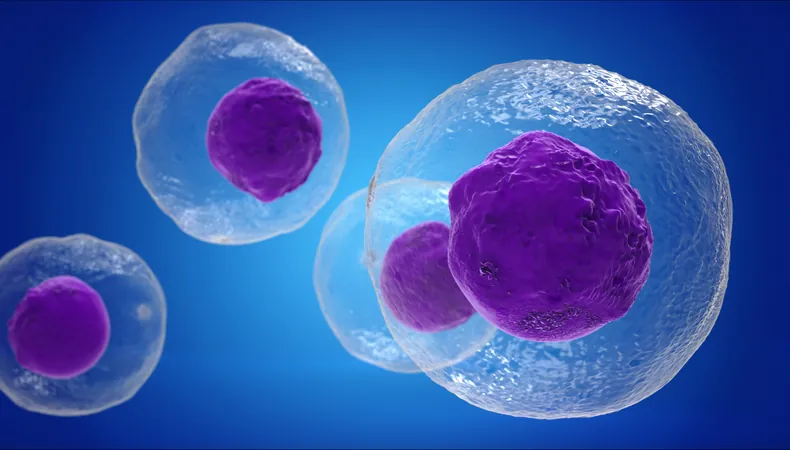
Breakthrough in Cancer Treatment: Antioxidants to Combat T Cell Exhaustion!
2025-09-12
Author: Mei
A groundbreaking study is shedding new light on how antioxidants can revive T cell function, potentially revolutionizing cancer immunotherapies like CAR-T.
The Tumor’s Toxic Terrain
Cancer cells thrive in a harsh environment, making it incredibly difficult for our immune system to perform effectively. Factors like low oxygen levels and high acidity wreak havoc on mitochondria, leading to a state known as T cell exhaustion, which contributes to poor cancer treatment outcomes.
Revolutionary Findings from the University of Pittsburgh
Published in the journal Immunity, researchers from the University of Pittsburgh discovered that the toxic environment created by tumors triggers mitochondria to produce harmful reactive oxygen species (ROS). These ROS journey to the nucleus, damaging telomeres and ultimately pushing T cells into dysfunction.
Lead author Dayana Rivadeneira highlighted the significance of the research, stating, "By preventing damage to telomeres with targeted antioxidants, we can rescue T cell function. This opens the door for exciting new therapies to enhance cancer immunotherapy effectiveness!"
A Groundbreaking Experiment: The Crosstalk Between Mitochondria and Telomeres
The research team used engineered mice equipped with a unique genetic system that creates targeted oxidative damage either at telomeres or in mitochondria when exposed to far-red light.
The results showed that damaging either component led to the same conclusion: dysfunctional T cells. Professor Greg Delgoffe remarked, "There’s an intriguing communication between the mitochondria and the nucleus that we hadn't fully appreciated in the immune system before."
Harnessing Antioxidants to Restore T Cell Function
Since ROS were the culprits behind telomeric damage, the researchers speculated that ROS-neutralizing antioxidants could restore T cell functionality. They engineered mouse T cells with an antioxidant protein specifically targeting telomeres.
The results were astounding: when infused into mice with aggressive melanoma, these engineered T cells showed significantly improved survival rates and smaller tumor sizes compared to regular T cells.
Implications for CAR-T Therapy
This antioxidant approach could be a game-changer for CAR-T therapy, where a patient’s own T cells are engineered to better identify cancer cells before being reinfused into the body.
Delgoffe asserts, "This is highly translatable; we can seamlessly integrate this strategy into standard CAR-T protocols. While we’re enhancing T cell capabilities, we can also fortify them against oxidative damage!"




 Brasil (PT)
Brasil (PT)
 Canada (EN)
Canada (EN)
 Chile (ES)
Chile (ES)
 Česko (CS)
Česko (CS)
 대한민국 (KO)
대한민국 (KO)
 España (ES)
España (ES)
 France (FR)
France (FR)
 Hong Kong (EN)
Hong Kong (EN)
 Italia (IT)
Italia (IT)
 日本 (JA)
日本 (JA)
 Magyarország (HU)
Magyarország (HU)
 Norge (NO)
Norge (NO)
 Polska (PL)
Polska (PL)
 Schweiz (DE)
Schweiz (DE)
 Singapore (EN)
Singapore (EN)
 Sverige (SV)
Sverige (SV)
 Suomi (FI)
Suomi (FI)
 Türkiye (TR)
Türkiye (TR)
 الإمارات العربية المتحدة (AR)
الإمارات العربية المتحدة (AR)